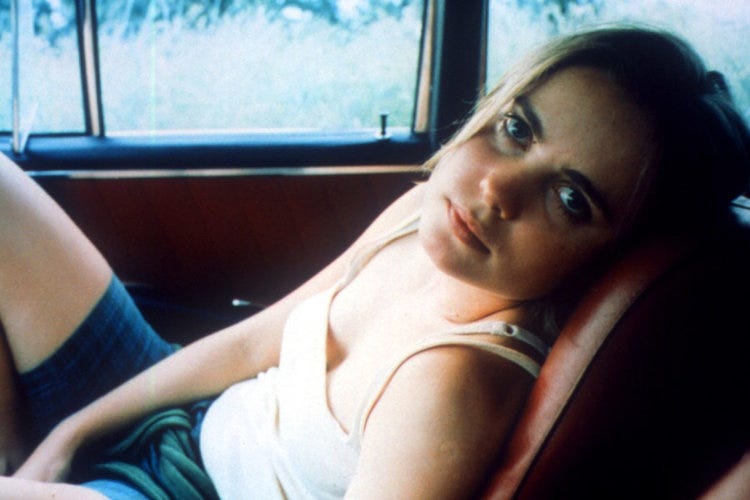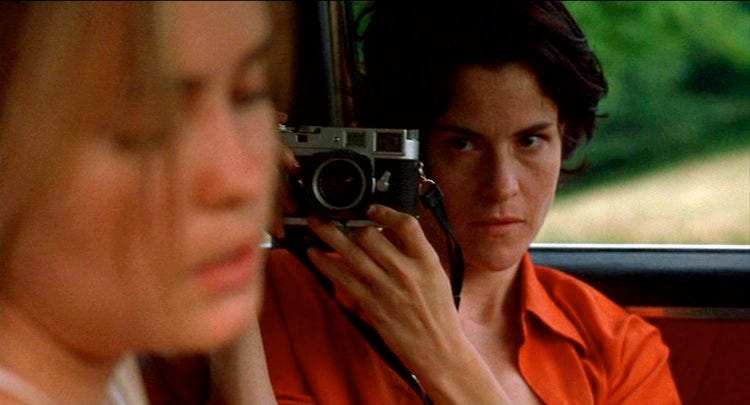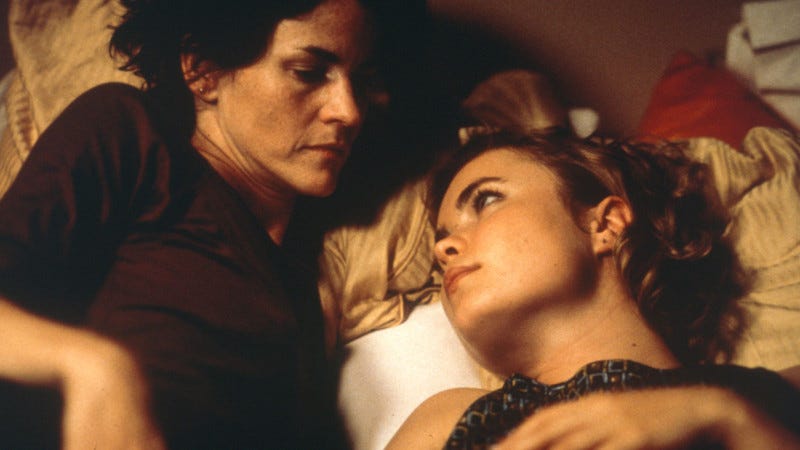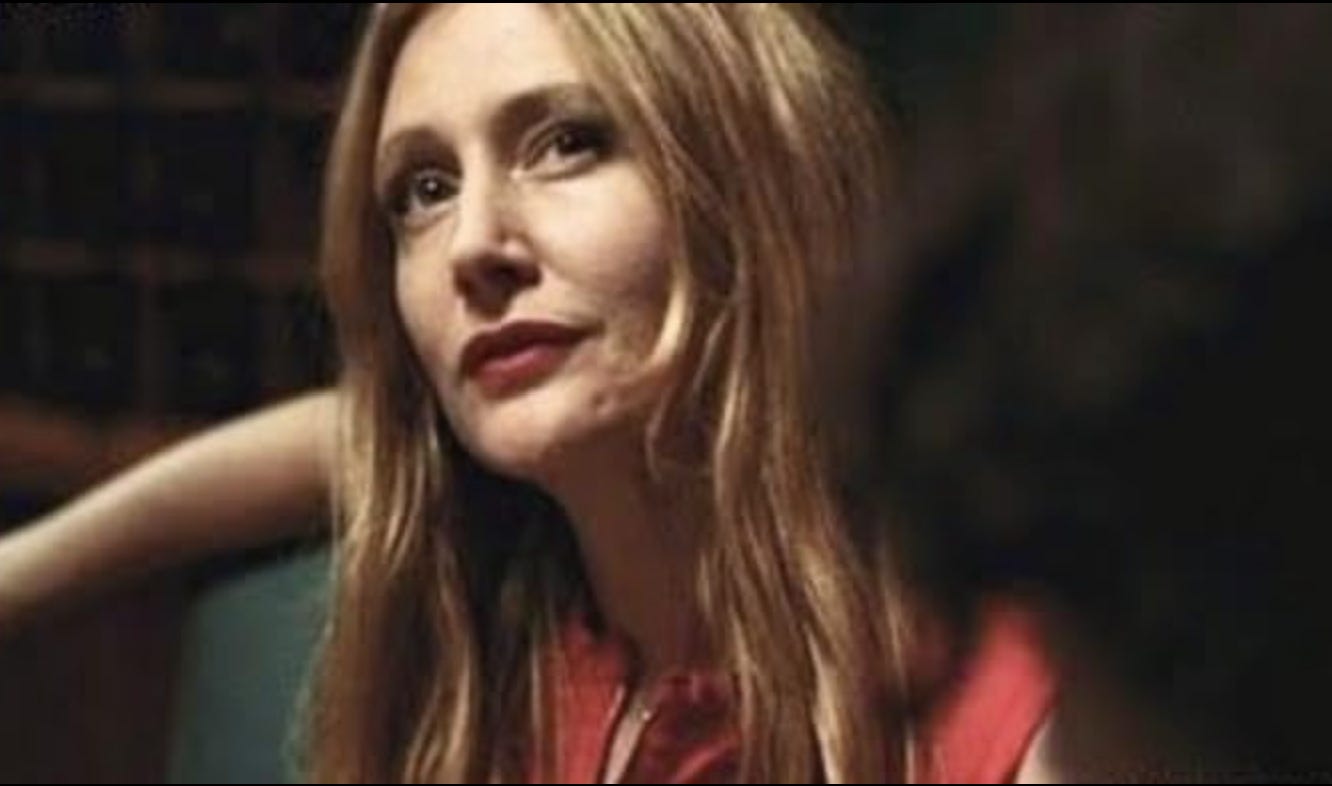high art
Film, 1998
Written and Directed: Lisa Cholodenko
High Art is a self-conscious and haunting examination of two lives that intersect, painfully and without mercy.
In her ambitious feature film debut, Lisa Cholodenko wrote a screenplay that doesn't tell a story about her characters and their lives, it examines them, meticulously, pointing out every flaw, every weakness, every strength, every misstep. They are dissected to such a minute degree that it makes us squirm. High Art is about seeing, and expressing, and our voyeuristic tendencies are fed generously.
This could have backfired. If the characters weren't so well developed (and acted!) this technique would have highlighted the flaws in the screenplay. As it is, despite everything that is put under a microscope, we feel that we've been allowed to witness only an inkling of their lives. There's more depth, more carnage to be explored underneath the cracked and wrinkled veneer we are shown.
Films that have photography or filmmaking as plot devices invariably become self-referential and explore what it means to create art. High Art is no exception. As Lucy says to Syd, "I haven't been deconstructed in a while". Not only are the characters picked to pieces, but so are the reasons behind why we create. The construction and appreciation of imagery at all levels is scrutinized, with Cholodenko having very little good to say about the so-called elite of the art world.
Underneath this dissection and examination sits Syd (Radha Mitchell), a young girl trying to make it in the cutthroat and personality-deficient world of photography magazine editing. In one of those filmic coincidences we've learned to just accept, Syd happens to live downstairs from off-beat cult photographer Lucy Berliner (a not-a-moment-too-soon comeback from the gorgeous Ally Sheedy).
Lucy, who made a splash a decade before, has turned her back on the art world in disgust, falling haphazardly into a heroin-riddled haze with her girlfriend, ex-Fassbinder actress Greta (Patricia Clarkson, before she became famous!). The Fassbinder reference seems to be another subtle, yet intriguing self-referential dig at the "high-brow" art world in general.
Meeting Syd reawakens things inside Lucy that she thought she had lost; real passion for another human being, a liking of herself, and ambition in her life and her art. As the two women are drawn together they leach off each other, with Lucy climbing out of her self-obsessed, drug-fucked stupor, while simultaneously showing Syd that other worlds live and breathe outside of her ambitious, job-focused existence. But Lucy isn't as strong as Syd. Her isolation from the world and her constant need to escape overwhelm her, despite the pull of Syd's honest yet naive adoration.
Isolation is everywhere. It lingers in the lighting and sparse sets, the awkwardness of conversations, relationships and the harshness of the competition in Syd's repressive office. Only Lucy's photography, and the feeling when Lucy and Syd are together, give us relief from the oppressive atmosphere.
The film screams that how we present things, how things are framed, means everything. In case we missed the point, Syd’s magazine is even called "Frame". People, objects, and dialogue are all in the exact right place. Lucy's apartment is a treasure trove, an intimate look into her mind that can only be gauged by seeing what, and who, she has chosen to surround herself with. A simple scan of her apartment reveals so much, which is why the camera spends so much time sweeping in a circular motion, lingering on important details.
Cholodenko has shown herself to be a scholar of the visual image. High Art is a dense film and many people may find the going difficult. It's certainly not what I watch to make a happy evening brighter.
Despite that, watching this tender, fragile relationship developing, where you know everything can and will fall apart at any moment, is satisfying, and real. It was dark, but I found some hope in the ending. I don't think it is Cholodenko's intention to show that love fails or that dedication to your goals is pointless. Syd and Lucy make real progress. The isolation they felt was overcome, if only for the briefest of moments. We know that Syd will no longer throw away her talent on anything not worthy of her, not now that she knows what passion and love really mean, and how easy a thing life is to waste.






Is masterpiece too much of a word for this movie? I don't think so. It stays in your mind long after watching.